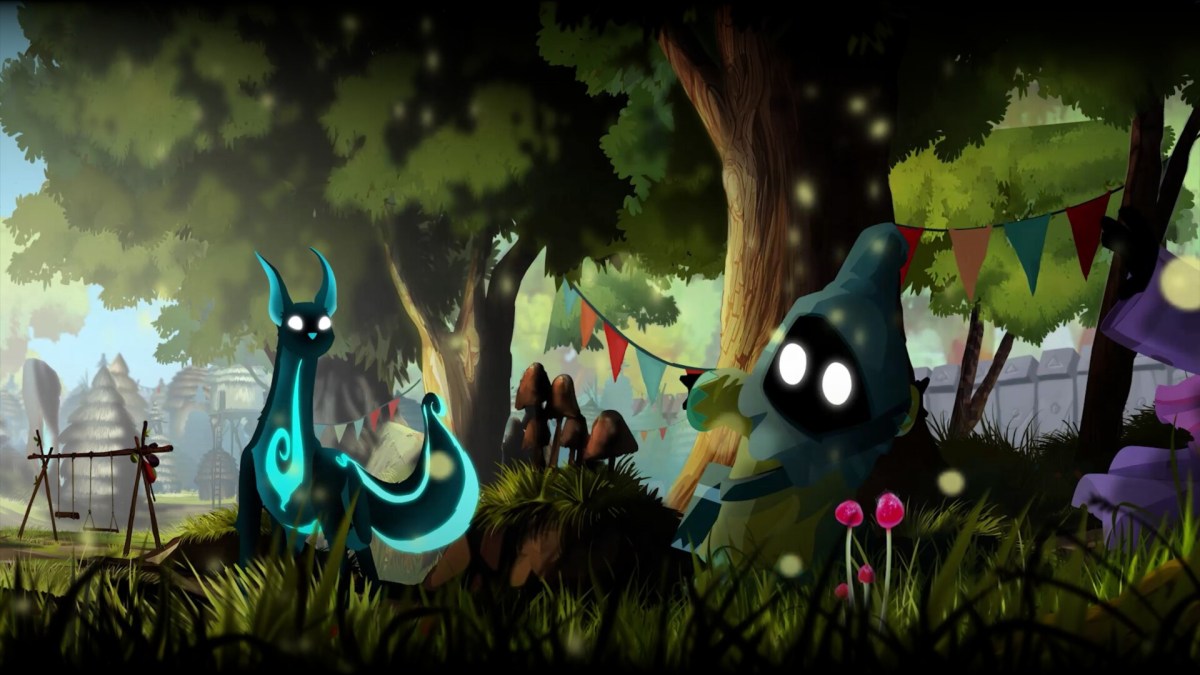There are a lot of puzzle platformers about switching planes back and forth to progress. Too many, really. When I first started playing Unbound: Worlds Apart, I rolled my eyes and thought, “Great, this again.” But then the game pivots. And then it pivots again, and again. Unbound: Worlds Apart might seem like a completely basic, overly familiar game at first blush, but it’s actually a tightly designed, captivating experience for its brief duration. The premise and visual style aren’t particularly unique and the game’s final section can be an annoying pain, but this is a great choice for fans of clever platformers.
Unbound: Worlds Apart puts you in the shoes of a Soli, a child whose village is destroyed by evil forces. They really went with that setup. An evil being is running amok and, for some reason, it’s up to a child that learned how to use portal magic a day ago to save the world. You meet some great mages who assist you, but these adults are truly negligent. No wonder the world is in such disarray. The story is the weakest aspect of the game. Honestly, I hardly remember much of it. There’s a bad ending and a good ending, but the good ending requires a fair amount of extra legwork that not everyone will want to do.
The presentation is similarly generic, with lots of familiar fantasy locations and characters. The art does look quite nice, though, with a lot of vibrant, colorful locations and fluid vector art. The different areas feel distinct enough that I didn’t find myself getting lost or confused. I feel like I’m coming across as a bit harsh in these first couple of paragraphs, so I do want to make it clear that I don’t have much of an issue with these generic aspects of Unbound: Worlds Apart, as this is very much a game worth playing for the gameplay alone.
Different world
Unbound: Worlds Apart is billed as a bit of a Metroid-like, but that’s only partially accurate. In reality, the game is divided into three areas: the forest, the desert, and the dark, evil very bad not-at-all good place where the evil lord of evil awaits. When you first start the game, Soli can only jump. That’s it. During the intro, however, they get the ability to use portals. But “portal” really isn’t the right word. I’m not sure what the right word would even be, considering how variable the effects are.
The first portal effect causes the world around you to change within the pocket where you summon the portal. This creates new geometry and backgrounds, as well as changes the enemies. Switching to a different world pocket creates platforms and things like that. Enemies within the pockets will often change into much more dangerous adversaries when you switch. For example, some enemies don’t have physical forms in one pocket, but will then show up and ruin your day in the other. Soli can only take a single hit, whether it be from foes or environmental hazards.
If Unbound: Worlds Apart had solely been this one mechanic, there wouldn’t be anything too noteworthy here. Other games have also done the above and, while it’s good in Unbound: Worlds Apart, that doesn’t make it all that easy to recommend. But then you get to another area and what the portals do completely changes, and will instead invert gravity. You’ll often need to use this to rapidly switch between the two pulls, which basically allows you to fly. Then there’s an area that takes place in the dark, and your portal will automatically expand around you to show your surroundings but shrink back to nothing once you start moving. There’s one that makes Soli tiny too. These are all great fun.
Always something else
The way Unbound: Worlds Apart changes from section to section gives it a constant feeling of variety. Nothing wears out its welcome and the game continues moving at a brisk pace. Soli also gets other abilities, but these are purely basic Metroid-like standards. First, you find a double jump. Then there’s a wall jump. Finally, you’ll get an air dash, followed by the double air dash. The general movement mechanics are nothing we haven’t seen before.
However, the controls are superb for the most part. They’re responsive and dependable, although the input for the double jump honestly feels a bit too sensitive to me. It got me in a fair amount of trouble from time to time. Similarly, the level design is lovely. Unbound: Worlds Apart can be fairly challenging at times, but checkpoints are so common that this isn’t often aggravating. Plus, after a while, you can freely warp to any of the teleportation stones you come across, which makes getting around easy.
The game does fall into one of my least favorite indie pitfalls towards the end, though. The final stretch before the last boss tasks you with making your way down long, difficult corridors with few checkpoints where you have no choice but to memorize the level layout. Once again, you take one hit and you’re toast. The section directly before the final boss is horribly frustrating and I couldn’t wait for it to end. Here, Soli’s portal turns into a weapon and you’re fighting foes while carefully dodging projectiles. You have to fight multiple waves without making a single mistake, and it’s honestly quite dreadful.
Scream machine
The final boss itself has checkpoints after each phase, though, and wasn’t nearly as annoying as the preceding section. But simply beating them in a straight shot through the game gives you a pretty negative ending. The forest and desert have lost villagers to find, and you’ll need to find all of them to unlock a couple of extra levels that will let you beat the boss and net you the good ending. Getting some of the hidden villagers can be quite a challenge, so don’t expect a cakewalk.
You can get the bad ending in Unbound: Worlds Apart in just five hours or so, and it’ll probably take a couple more if you care enough to see the good ending. The game is quite generic and can be overly frustrating at times, but the level design and platforming are so good that I greatly enjoyed most of my time with the game regardless. It isn’t a particularly long adventure, but there’s plenty of quality platforming and level design to be had here.












Published: Jul 28, 2021 01:00 pm